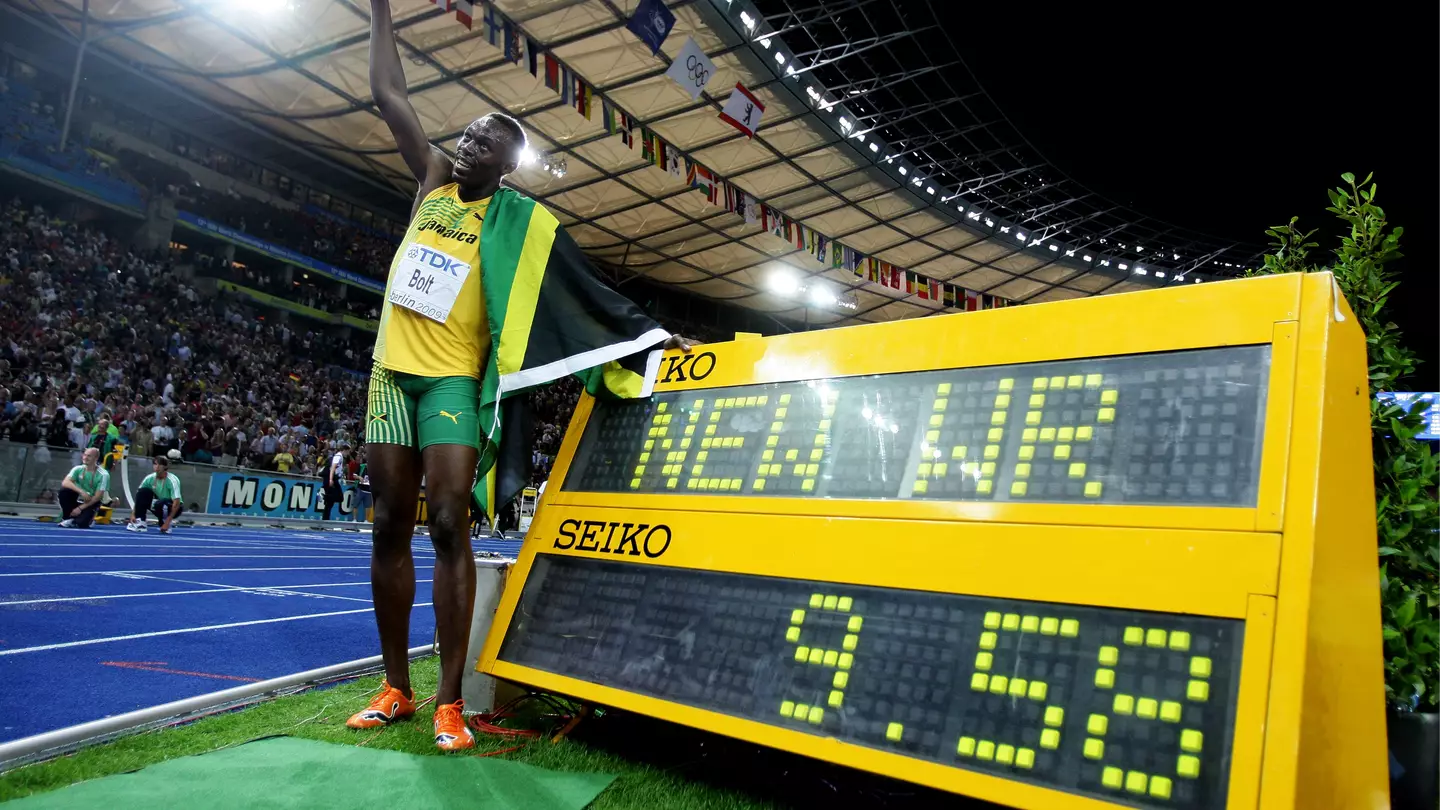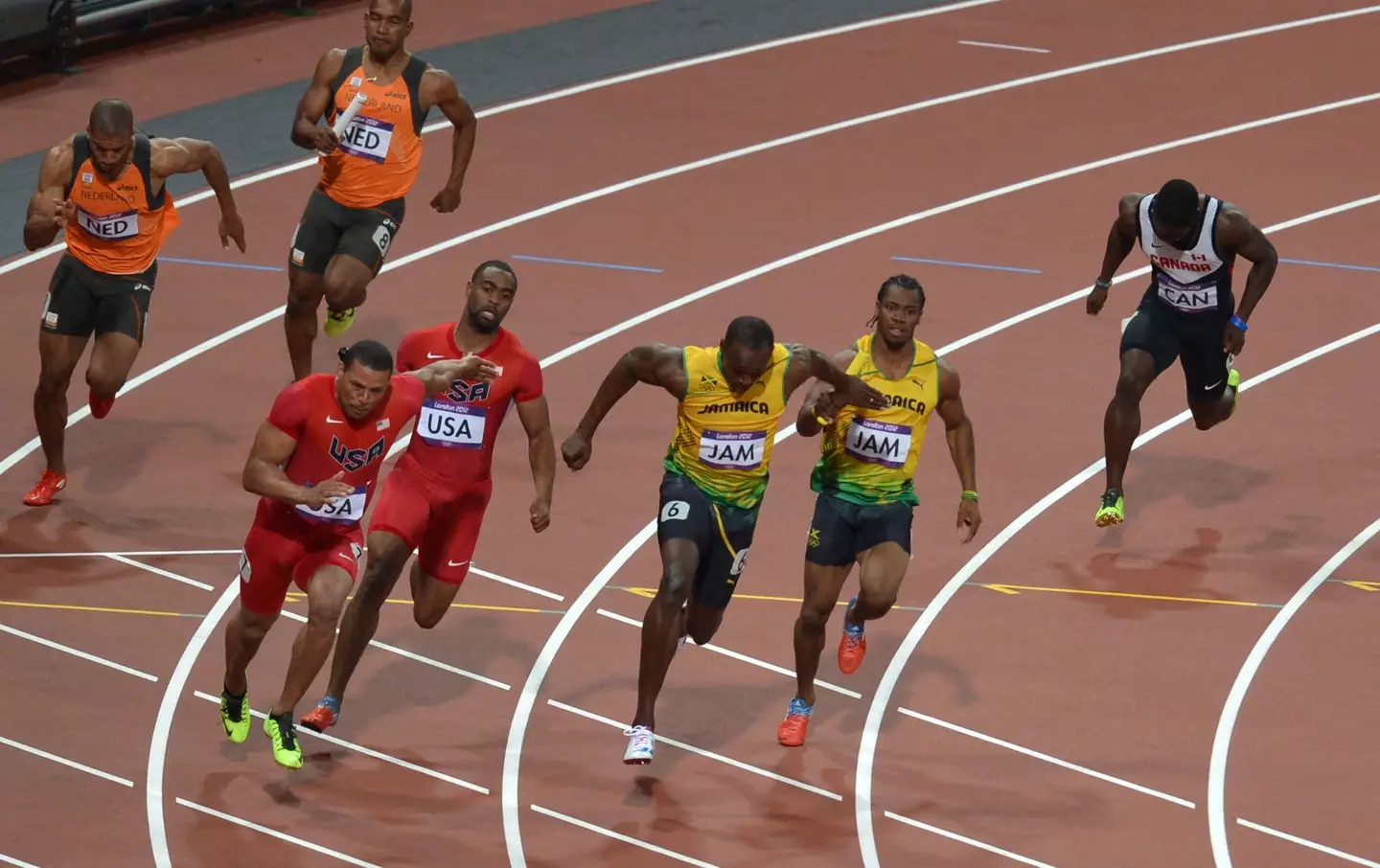
Usain Bolt could lose all of his world records if a controversial loophole is exploited by rivals.
Bolt won eight Olympic gold medals across three Games in his illustrious career, breaking world records in the 100m, 200m and the 4x100m.
In 2009, he re-broke his own 100m world record, finishing in 9.58 seconds, cementing his status as the fastest man ever.
But a former track and field athlete, who is now a college coach, believes there is a way sprinters could save even more time. And he's spent quite a bit of resource and time explaining why.
Advert
Omar Bryan believes that the angle athletes have their torso at the start line is decisive.
As the torso is the body part that stops the clock at official competitions, if athletes are able to learn forward with their torso at the start of a race, it could save valuable fractions of a second.
As Olympic sprinters typically make between 43 and 48 strides over a 100m, if an athlete leaned forward with their torso by five centimetres at the start, it would save between 0.005 and 0.01 seconds.
.jpg)
Is the torso lean legal in athletics?
Put simply, yes. There are no rules over where the torso must be at the start of the race, just that their hands must be behind the line.
The World Athletics Competition Rules lay out the specific regulations.
Regarding the end of the race it says: “The athletes shall be placed in the order in which any part of their torso (as distinguished from the head, neck, arms, legs, hands, or feet) reaches the vertical plane of the nearer edge of the finish line.”
And in the World Athletics glossary, the torso is defined as the part of the body excluding head, neck, arms, legs, hands and feet.
Are there any other advantages for modern athletes?
The Telegraph reported that a laboratory near Cambridge have built the first 'super track'.
The digital 'smart' track includes sensors, which will provide data for athletes and coaches.
It also has an energy return, which is 20% better than normal running tracks.
Alvina Chen, who is the entrepreneur behind the smart track said he believes humans could run 'early nine seconds if not sub nine seconds.'

Who is closest to Bolt's world record?
Bolt holds the three fastest times ever, with retired stars Tyson Gay and Yohan Blake the next on the list.
Bolt believes fellow Jamaican Oblique Seville is the most likely to break his long-standing record.
Seville, who works with Bolt's old coach Glen Mills, has clocked 9.81 seconds over 100m, but he could only finish eighth at the Olympics in Paris.
On The Fix Podcast Bolt said: "I feel like Oblique can do it.
"If he can stay fit during the season and get it right, I feel he can do it, because I am sure there is something there, the ability to do it."
Topics: Usain Bolt, Athletics, Olympics
